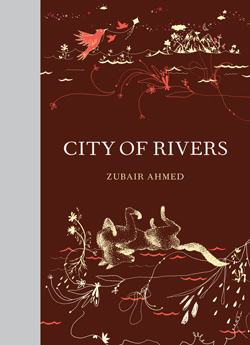
Zubair Ahmed. City of Rivers. McSweeney’s.
This the first book by a younger poet. His language is fresh, his forms immediate. He is desperate and alive. I found this book at Kramerbooks in Washington, DC and read the whole thing on the subway ride home. Then I read it again that night and again the next morning. It’s unsettling, ordinary, relentless, bizarre. At once.
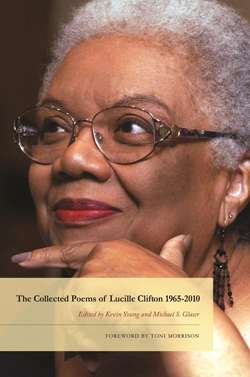
Lucille Clifton. Collected Poems. BOA Editions.
Lucille came into my life in 1993 by word and 1995 by flesh. We shared a hometown and a need to understand what lived beyond the body. We think we know how long life is, how strong we are. This book collects all of Lucille’s many wonderful collections plus has a ton of new manuscripts and insightful essays on Clifton’s work by Kevin Young and Toni Morrison.
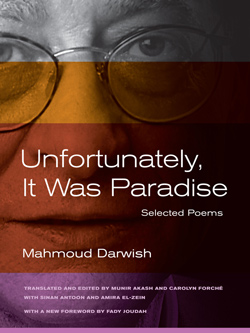
Mahmoud Darwish. Unfortunately, It Was Paradise. University of California Press.
Thanks to University of California for reissuing this book after ten years. It has a range of translators doing versions of Darwish’s work from 1986 – 2000. Darwish himself requested that a single American poet be consulted by the all the translators in order to honor the poetry in the work and give it a unified voice. Carolyn Forche did that deed and acquits herself admirably. Darwish is one of the most important literary voices on the planet, no exaggeration.
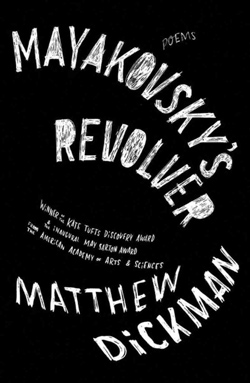
Matthew Dickman. Mayakovsky’s Revolver. W. W. Norton.
I was unfamiliar with Dickman’s work when I read this book but it had me from the very first poem. A plainspoken voice but one which dares oracular register. Mostly Dickman—to whom I was led because he blurbed Ahmed’s book—is fearless when confronting the storms and savageries of childhood and growing up. He knows poetry is cold comfort, but comfort in any case of some kind.
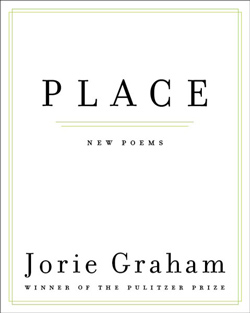
Jorie Graham. Place. Ecco.
She is polarizing—people seem to subscribe or avoid her—but I think her mind is worth scurrying after even when (especially when) the formal property of the poem (vocabulary, rhythm and lineation) seem intent on disrupting. She’s writing in a world she recognizes as dangerous. Having abandoned “beauty” of a certain kind with 2000’s Swarm, she continued to travel rocky waters. Poetry is no comfort here, cold or otherwise, rather it is the needle swinging not north but wildly haywire. Uh oh.
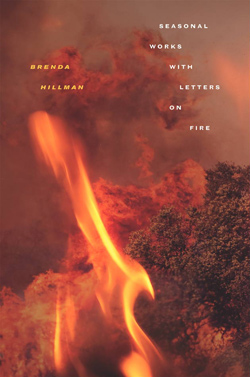
Brenda Hillman. Seasonal Works With Letters On Fire. Wesleyan University Press.
Like Jorie Graham, Brenda Hillman faces environmental disaster and global war head on. Unlike Graham she is not plumbing the depths of the conditions but is rather reaching always forward. With documentary poetics, postmodern lyric and ancient forms, she is an alchemist (literally in this case).
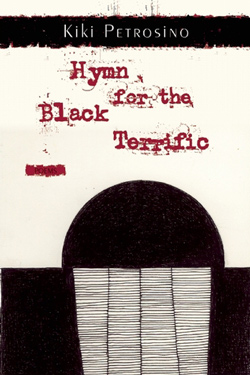
Kiki Petrosino. Hymn for the Black Terrific. Sarabande Books.
Petrosino has a fun sense of the lyric and the form of a poem even when she is dead serious in intent. I like the intellectual rigor here, the attention to history and the very freshness of her language, images, and structures. Sign me up to receive every new Petrosino poem in my in-box exactly when it’s ready.
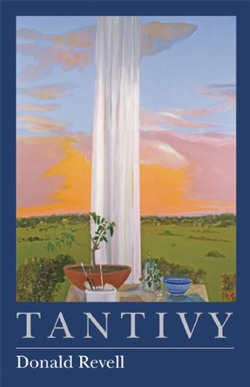
Donald Revell. Tantivy. Alice James Books.
I could get lost in a Donald Revell book any day of the week. I first encountered his work through his book Arcady which was given to me as a gift by Jennifer Chapis (whom I co-founded Nightboat Books with) after I read about Revell in one of Jorie Graham’s footnotes to Swarm. Revell’s lyric is fractured, drunk, heady and gambles everything on transcendence.
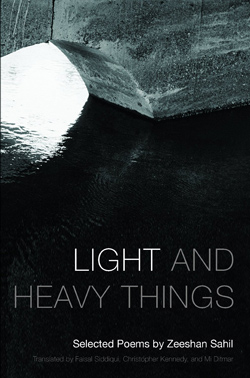
Zeeshan Sahil. Light and Heavy Things. BOA Editions.
This is the first English translation of this very contemporary and edgy Pakistani poet. Unlike most poetry from South Asia which has been translated into English, Sahil’s small poems are brief, modest and take contemporary life as their subjects. Yet their lyricism and spookiness are quite unlike anything in the idiom of irony and wit so prevalent in much contemporary American poetry.
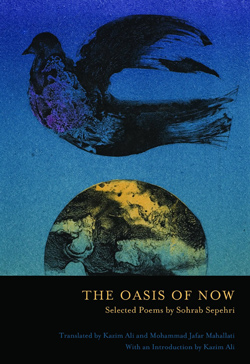
Sohrab Sepehri. The Oasis of Now. BOA Editions.
It’s partially a cheat to include this book as I am its main translator, but Sepehri is one of the most important Iranian poets of the twentieth century and American readers who are so enraptured by the palliative versions of Hafez and Rumi that are so widely available would do themselves a great boon by investigating Sepehri—a poet whose engagement with the divine is alarming, intensely personal and wildly revelatory.